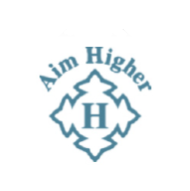Computing
Harris Primary School Computing Curriculum
A high-quality computing education equips pupils to use computational thinking and creativity to understand and change the world. Computing has deep links with mathematics, science, and design and technology, and provides insights into both natural and artificial systems. The core of computing is computer science, in which pupils are taught the principles of information and computation, how digital systems work, and how to put this knowledge to use through programming. Building on this knowledge and understanding, pupils are equipped to use information technology to create programs, systems and a range of content. Computing also ensures that pupils become digitally literate, helping them to use information and communication technology to express themselves and develop their ideas. This will bring their skills to a suitable level for the future workplace as an active participant in a digital world.
Aims
The national curriculum for computing aims to ensure that all pupils:
can understand and apply the fundamental principles and concepts of computer science, including abstraction, logic, algorithms and data representation
can analyse problems in computational terms, and have repeated practical experience of writing computer programs in order to solve such problems
can evaluate and apply information technology, including new or unfamiliar technologies, analytically to solve problems
are responsible, competent, confident and creative users of information and communication technology.
Key stage 1 Pupils should be taught to:
understand what algorithms are; how algorithms are implemented as programs on digital devices; and that programs execute by following precise and unambiguous instructions
create and debug simple programs
use logical reasoning to predict the behaviour of simple programs
use technology purposefully to create, organise, store, manipulate and retrieve digital content
recognise common uses of information technology beyond school
use technology safely and respectfully, keeping personal information private; identify where to go for help and support when they have concerns about content or contact on the internet or other online technologies.
Key stage 2 Pupils should be taught to:
design, write and debug programs that accomplish specific goals, including controlling or simulating physical systems; solve problems by decomposing them into smaller parts
use sequence, selection, and repetition in programs; work with variables and various forms of input and output
use logical reasoning to explain how some simple algorithms work and to detect and correct errors in algorithms and programs
understand computer networks including the internet; how they can provide multiple services, such as the world wide web; and the opportunities they offer for communication and collaboration
use search technologies effectively, appreciate how results are selected and ranked, and be discerning in evaluating digital content
select, use and combine a variety of software (including internet services) on a range of digital devices to design and create a range of programs, systems and content that accomplish given goals, including collecting, analysing, evaluating and presenting data and information
use technology safely, respectfully and responsibly; recognise acceptable/unacceptable behaviour; identify a range of ways to report concerns about content and contact.
Computational Thinking
Computational thinking lies at the heart of the national curriculum for computing. Computational thinking allows us to take a complex problem, understand what the problem is and develop possible solutions. It includes the key building blocks for success in computing, such as using abstraction to simplify problems or decomposing problems into smaller chunks.
There are four key techniques (cornerstones) to computational thinking:
decomposition - breaking down a complex problem or system into smaller, more manageable parts
pattern recognition – looking for similarities among and within problems
abstraction – focusing on the important information only, ignoring irrelevant detail
algorithms - developing a step-by-step solution to the problem, or the rules to follow to solve the problem.
As computational thinking skills develop, children become more adept at applying logic, spotting patterns, planning algorithms, and evaluating computer programs. Our oracy curriculum supports this by giving pupils the language and confidence to explain their thinking, discuss solutions with others, and reflect on what worked and why. Together, computational thinking and strong speaking-and-listening skills help children become clear, collaborative, and resilient problem-solvers in computing lessons.

Computing at Harris Primary School
At Harris Primary School, we use the Teach Computing Curriculum. This curriculum is structured in units which are based on a spiral curriculum, ensuring that topics are revisited yearly so that knowledge remains secure over time. Teach Computing is based on research and shows the breadth and depth of the computing curriculum, particularly beyond programming.
The children will embed many digital literacy, computer science and information technology skills through learning about a range of topics, such as:
Computer systems and networks
Creating media
Programming
Data and information
Creating media
Online Safety at Harris Primary School
Teach Computing covers the required online safety objectives in the Computing National Curriculum. We use Project Evolve to cover the additional online safety objectives detailed in The Education for a Connected World Framework. This framework enables children to live knowledgeably, responsibly and safely in a digital world.
It focuses specifically on eight different aspects of online education:


Photos of Learning in EYFS
Coming soon!
Photos of Learning in KS1
Coming soon!
Photos of Learning in KS2
Coming soon!
Enrichment Opportunities
Coming soon!








